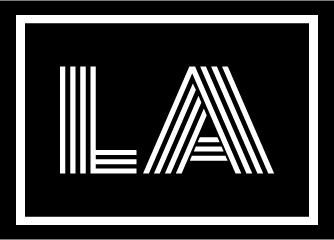In the fast-paced, heavily regulated world of today, managing a laboratory’s activities effectively presents several difficulties. Laboratory Information Management Systems (LIMS) have become essential tools for assuring regulatory compliance, optimizing processes, and enhancing data management. A LIMS must be implemented and optimized, however, and this demands knowledge and careful preparation. It is at this point that LIMS consultancy is useful. In this post, we’ll examine the value and advantages of LIMS consulting and how it may assist labs in achieving their objectives.
LIMS Consulting: An Overview
LIMS consulting deployment and laboratory informatics is provided by seasoned experts in these fields. These experts are very knowledgeable about the technical components of LIMS as well as industry best practices and legal regulations. They collaborate closely with labs to comprehend their particular requirements, provide solutions that are suited to those demands, and assist them throughout the whole LIMS deployment, modification, and optimization process.
Benefits of Consulting with LIMS
Needs Evaluation
The needs, procedures, and current systems of the laboratory are first carefully examined by LIMS experts. This aids in pinpointing problem areas, inefficiencies, and opportunities for development. Consultants are able to provide the best LIMS system and customization choices by fully grasping the unique requirements of the laboratory.
Vendor Picking
Consultants are able to assist labs in choosing the best LIMS provider due to their in-depth knowledge of the LIMS industry. They may aid in comparing features, functionality, and prices of several options, as well as determining compatibility with current infrastructure.
Configuration and Personalization
Each laboratory has its own needs and procedures. The laboratory personnel and LIMS experts work together to set up and adapt the LIMS appropriately. They make that the system is configured to satisfy certain data management demands, legal compliance standards, and reporting requirements.
Integration and Implementation
The installation of a LIMS may be difficult and time-consuming. Consultants guide labs through the implementation process and make sure it is completed successfully and on schedule. To ensure a smooth transfer to the new LIMS, they manage data migration, system interface with current laboratory equipment, and user training.
Compliance and Validation
Particularly in highly regulated areas like pharmaceuticals and healthcare, regulatory compliance is a crucial component of laboratory operations. Laboratories get help from LIMS experts to make sure their LIMS complies with all applicable regulatory standards and validation criteria. To make sure that law like the FDA’s 21 CFR Part 11 are followed, they assist in designing and carrying out validation strategies, producing validation paperwork, and performing audits.
Constant Assistance and Improvement
Even after the first deployment, LIMS specialists continue to provide assistance. They help with system updates, give troubleshooting support, and educate new hires. By putting best practices into practice, suggesting process enhancements, and spotting chances for automation and efficiency benefits, they also assist labs in optimizing their LIMS.
LIMS Consulting’s Drawbacks
Cost
The cost of LIMS consulting services may be high, especially for smaller labs with tighter budgets. Consultant fees, implementation costs, customization fees, and continuing maintenance costs are possible additions to the price.
Continuity with Consultants
By hiring LIMS consultants, you could become more dependent on outside knowledge. When it comes to system customization, training, and continuing maintenance, laboratories may depend extensively on consultants.
Application Period
With the aid of specialists, implementing a LIMS system might take a long time. It requires intensive coordination between consultants and laboratory employees, including requirements collecting, system configuration, and staff training.
Conclusion
Modern laboratory operations rely heavily on Laboratory Information Management Systems (LIMS), which provide simplified processes, data management, and regulatory compliance. However, setting up and perfecting a LIMS may be difficult. Laboratories get the knowledge and direction necessary to properly complete this procedure from LIMS consultancy.

